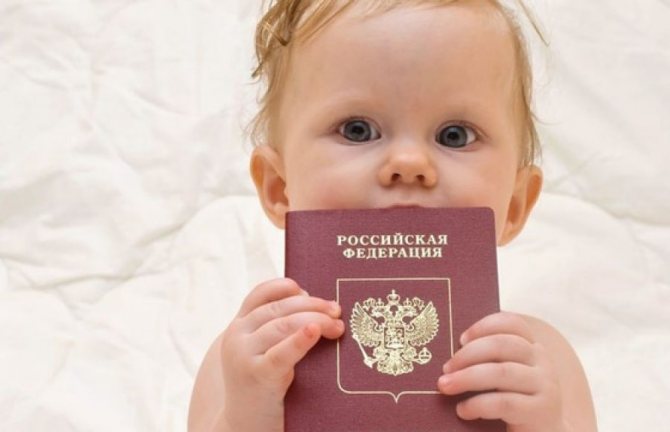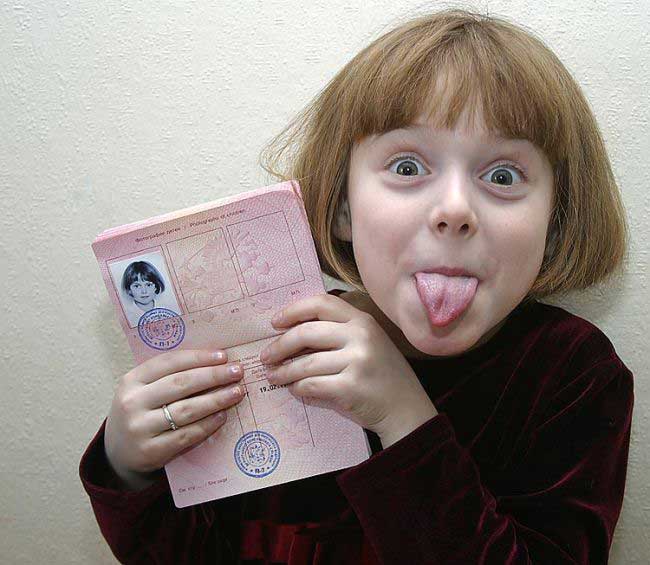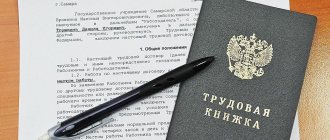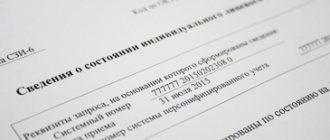- Legal assistance
- Legal services
- Russian citizenship
- Grant citizenship to a child
>
>
>
Many parents are concerned about the question: how to obtain Russian citizenship for their child? The Migration Center PRAVO LEG has been dealing with issues of registration, receipt and acquisition of citizenship by birth for a child for more than 20 years.
Registration of Russian citizenship by parent
The child has the opportunity to prove that he has the right to obtain Russian citizenship only if the parent with such status provides one of the following documents:
- Passport of a citizen of the Russian Federation;
- Foreign passport of a citizen of the Russian Federation;
- Military ID with an annex containing information about the owner’s citizenship;
- A birth certificate in which the authorized body confirms that the child has Russian citizenship.
On a note! Additionally, a document is provided indicating the parent’s permanent residence in the Russian Federation. As a rule, an extract from the house register is provided as such evidence.
If a child is born in Russia, by law the baby has the right to automatically obtain Russian citizenship.
To exercise this right, parents must promptly submit to the registry office located at their place of registration documents and certificates received at the maternity hospital.
Obtaining additional written consent from parents to obtain citizenship in the Russian Federation is not required. This rule applies in cases where both the father and mother of the baby are foreign citizens.
If one of the child’s parents is a citizen of another state, then in order to obtain Russian citizenship, the child will need to obtain his written consent.
Not all states provide the opportunity to have two citizenships at once, so the authorized government agency in the Russian Federation will necessarily require confirmation.
As proof, applicants will have to take care of collecting the necessary documents. If the baby is a newborn, then immediately after birth, he can be granted dual citizenship.
If one of the child’s parents already has previously registered Russian citizenship, the child has the right to become a Russian citizen in an accelerated manner. All procedures for obtaining citizenship are carried out within the framework of the Family Reunification program.
To obtain citizenship, a parent who already has registration in the Russian Federation must contact the Main Migration Department of the Ministry of Internal Affairs at their place of residence with an application.
The appeal contains information that the child has already stayed in Russia for more than 1 year, and the parent agrees that the child can be permanently registered at his place of registration.
Registration of citizenship is carried out in authorized government bodies. In the case of obtaining status through parents, the following are competent to issue documents:
- Main Department of Migration Affairs of the Ministry of Internal Affairs;
- Civil registry office, since persons under 14 years of age are not entitled to obtain a Russian passport.
Attention! If obtaining citizenship is necessary for a newborn, Russian citizenship is automatically transferred to this baby. Civil registry office employees make the appropriate entry based on documents received from the medical institution where the child was born.
In a situation where the child is no longer a newborn at the time of applying for citizenship, it is necessary to apply for registration of status to the department of the government agency located at the place of registration of the parent or guardian.
Documentation
To obtain citizenship, the following documents must be submitted to the authorized government agency:
- Documents that are used as identification for the parent and his child;
- An application drawn up in the form of a government agency;
- Photos that will be used for the application form and Russian passport;
- RVP valid at the time of application;
- The basis for the possibility of obtaining citizenship;
- Certificate of no criminal record and violation of laws;
- TIN, if issued;
TIN certificate
- The parent's consent to the child's registration in the residential premises belonging to him.
To confirm and accept citizenship, different types of applications are written. They are slightly different from each other.
In both cases, the form is filled out by one of the parents, preferably in block letters or legible handwriting. Correcting or crossing out entries in the application is strictly prohibited. Only reliable information must be provided on the form. Providing false information will result in denial of citizenship.
You can also fill out the application on your computer. The form must be filled out exclusively in Russian. Spelling and punctuation errors are not allowed in the text.
The status of a Russian citizen is acquired in a general or simplified manner.
In general, a foreigner receives Russian citizenship after 1 year after submitting documents; the decision is made by the president of the country. The accelerated naturalization procedure takes from 3 to 6 months; issues of granting citizen status are dealt with by employees of the territorial divisions of the Main Directorate for Migration of the Ministry of Internal Affairs of Russia.
If the applicant belongs to the category of foreigners who have the right to obtain Russian citizenship for children who are citizens of the Russian Federation, the status of a Russian citizen is issued according to an accelerated procedure. A temporary residence permit is issued without taking into account the quota and in the region where the son or daughter lives.
After living under a temporary residence permit for 6 months, you can start applying for a residence permit, which will be provided if the applicant has lived on the basis of a temporary residence permit for at least 1 year at the time of receiving it.
Registration at the place of residence is a mandatory step after obtaining a residence permit. Residence under a residence permit on the territory of the Russian Federation gives the right to submit an application and a package of required documents to the migration service department. It is there that you can learn more about how to obtain citizenship for your mother if your son is a Russian citizen, and what documents need to be provided in each specific case.
The completed application must be accompanied by a package of documents, the list of which was approved by Decree of the President of the Russian Federation of November 14, 2002 No. 1325.
The standard list includes:
- applicant's passport/ID;
- resident card;
- birth certificate/passport of a child of a citizen of the Russian Federation;
- certificate / bank statement confirming the availability of a source of income;
- a document confirming the renunciation of existing citizenship;
- certificate or other document confirming knowledge of the Russian language.
In addition to general papers, you will need certificates that confirm the existence of grounds for naturalization; documents in a foreign language must have a notarized translation.
Make an appointment
When all the stages established by law have been completed, documents for citizenship are submitted to the territorial body of the Main Directorate for Migration Affairs of the Ministry of Internal Affairs at the place of residence. Contact information and work schedules of the departments are posted on the official website of the Ministry of Internal Affairs of the Russian Federation. You can make an appointment using the resource on the “Online Appointment” page. On this page, you must select the territorial authority, type of service, type of operation, date and time for submitting documents.
It is worth noting that the system is still being improved and making an appointment for citizenship issues is not yet possible in all cities of Russia; sometimes the waiting period for a free space for an online appointment lasts for a day, especially since each family member needs to book an appointment separately.
The functions of granting Russian citizenship under a simplified procedure on the territory of the Russian Federation are carried out by the territorial bodies of the Main Directorate for Migration of the Ministry of Internal Affairs. The application and package of prepared documents should be submitted to the migration authority at the applicant’s place of residence.
Outside the Russian Federation, documents for naturalization are accepted by diplomatic and consular missions of the Russian Federation. It is more convenient to submit documents for obtaining a temporary residence permit to Russian diplomatic missions on the territory of a foreign state. Sometimes collecting certificates and taking tests for parents is easier and cheaper in the country of your previous citizenship.
According to Article 333.29 of the Tax Code of the Russian Federation, a fee is charged for the provision of this public service, the amount of which is 3,500 rubles. A receipt for payment of the state fee must be attached to the application. In different regions of registration, payment details differ, which can be found on the website of the territorial body of the Ministry of Internal Affairs.
When submitting documents outside of Russia, a consular fee is charged, the payment of which occurs directly at the consulate cash desk; the amount can be converted into local currency.
We invite you to read: Alimony for parental support - an overview of judicial practice
The total period of the procedure for obtaining Russian citizenship for a child can take one and a half to two years, this period includes the registration of a temporary residence permit and residence permit. It takes no more than 6 months to directly consider an application for citizenship under a simplified procedure.
To obtain citizenship, you must submit an application to the Federal Migration Service. The application is drawn up in the format established by law. Also, the application can be filled out and submitted online on the FMS website.
The application for obtaining Russian citizenship for parents is accompanied by a package of necessary documents, which includes:
- Applicant's passport with a copy;
- A document indicating citizenship or lack thereof;
- A document confirming the place of registration of a foreign citizen in his homeland;
- Passport of one of the child’s parents who lives in the Russian Federation and has citizenship (copy);
- Marriage certificate, divorce certificate, death certificate of one of the parents, other document confirming the applicant’s marital status;
- Certificate of legal income of the applicant;
- Certificate of proficiency in Russian (a document confirming state education received on the territory of the Russian Federation);
- A certificate from a foreign consulate indicating the renunciation of previous citizenship;
- Three photographs of the established size on matte paper.
The collected documents, along with the application, are submitted to the FMS. The period for considering the application and making a decision may take several months. If errors are identified in the provided documents, they will be returned for revision. If a negative decision is made, then resubmission of documents is possible.
How to start cooperation?
To use the help of lawyers, you need to take a few simple steps:
- Step 1 . Make an appointment with a lawyer. Registration is carried out: through the online service on the website, by phone (listed in the Contacts section) or by email (listed in the Contacts section). The initial consultation with a lawyer is free.
- Step 2 . Come to see a lawyer. During the first meeting, the lawyer will examine your situation, as well as the available documents. Based on the data obtained, an optimal scheme for children will be proposed, according to which they can become citizens of Russia.
- Step 3 . Conclusion of an agreement. After concluding the agreement, a set of documents for children will be prepared, which will be submitted to the migration service (GUVM MIA). Then these documents were submitted with subsequent monitoring of the progress of their consideration.
Answers to frequently asked questions
What law governs it?
The acquisition of Russian citizenship by birth is indicated in Art. 12 Federal Law “On Citizenship”. As a general rule, to obtain citizenship status, both parents of a child must have Russian citizenship. The child will also receive a Russian passport under the following conditions:
- if one of the parents is a citizen of the Russian Federation, and the other is stateless (stateless person), his place of residence is unknown or he is considered missing, the newborn is considered a citizen of Russia, even if he was born in some other country;
- if one parent is a Russian citizen and the other is a foreign citizen. But in this case, there is an important note - the child must be born on Russian territory, otherwise he will not be granted citizenship;
- the child was born in Russia, but to foreign citizens or stateless individuals. Granting citizenship is possible only when the home country of his parents has not granted citizenship to the newborn;
- a child will be considered a Russian if his parents are unknown and do not show up 6 months after the day he was discovered.
This is a comprehensive procedure for obtaining a Russian passport by birth.
Question No. 1: How important is it for a child to have this or that citizenship?
Answer: This question is very important for a child, since the acquisition of one or another citizenship determines what language the child will have to speak throughout his life, where to do military service, and where to defend his civic position. These and many other questions will become important in the future for an adult.
Question No. 2: Is it necessary to obtain written consent from the second parent for a child to obtain citizenship in 2021?
Answer: In order to obtain Russian citizenship for a child, you need to collect a certain set of documents. These include written consent for the child to acquire Russian citizenship. In some cases, such permission is optional. For a more accurate explanation, we recommend contacting a specialist.
Grounds for obtaining citizenship by a child
The Constitution of the Russian Federation, as well as the federal laws of our country, stipulate that a child can on various grounds. Let's remember the main ones:
- The child's parents are citizens of the Russian Federation. It is important to remember that the country where the child was born does not matter;
- One of the parents is a citizen of the Russian Federation, the other is a foreigner. The determining condition is the country of birth of the child;
- Parents are foreign citizens, but live in Russia. The defining condition is that the country to which the parents belong does not recognize the citizenship of the child;
- The child was abandoned. The defining condition is the absence of parents for six months.
What documents are needed?
- Application of the established form and filled out in accordance with all rules Application form
- Child's birth certificate;
- Russian passport of the citizen's father;
- Consent of the child, if he has reached 18 years of age;
- Consent of the other parent, if any.
Quite rarely, but still there are situations when the father does not currently have a passport as a citizen of the Russian Federation. In this case, the legislation provides the following mechanism for solving this problem. The legal representative must confirm his residence in Russia as of 02/06/2017. The following documents can be used for this:
- Home Book;
- Employment history;
- Registration card according to form No. 9;
- Card in form No. 10;
- Certificate from a medical or educational institution.
Until 2007, in order to recognize a child as a citizen of Russia, it was necessary to receive a special insert. After 2007, the procedure for obtaining it became simpler; the insert was no longer issued; instead, a stamp was placed on the birth certificate.
Helpful advice!
There is no need to change the stamp inserts you have already received; this document will have the same legal force.
To legalize the status of a newborn, parents submit the following documents:
- To issue a certificate, the passports of both parents are submitted to the registry office;
- if one of the parents is considered missing or there are other objective reasons for his absence, then the passport of one of the parents will be sufficient (the main condition is that he must be a citizen of the Russian Federation);
- You will need to submit a birth certificate (issued upon discharge from the maternity hospital);
- if the birth did not take place in a medical facility, a statement will be required from the person who took part in the birth;
- If the parents of a newborn have disappeared or died, then the documents for the child must be drawn up by the guardian.
Remember that you must obtain a certificate for the baby within a month after birth, otherwise you will pay a fine.
Orans applying for citizenship in Russia
| Condition group | Criteria included in the group |
| Related to the place of birth of the child | Children were born citizens of other countries on the territory of our country, provided that the child was denied citizenship in the parents’ home country |
| Children born on Russian territory when one parent is a Russian citizen | |
| Both parents are not citizens and do not have a Russian passport, and the child was born on Russian territory. | |
| Criteria not related to place of birth | Both parents have Russian passports |
| One of the parents is Russian, and the other is a foreigner, stateless person or unknown | |
| Neither parent is known, that is, the baby was abandoned |
To apply for citizenship for a child, parents, guardians or a representative of the organization under whose care the child is still must apply. Such an application must be made in person to the territorial body of the Department of Internal Affairs of the Main Directorate of the Ministry of Internal Affairs of the Russian Federation at the place of residence of the applicant for citizenship (not to be confused with temporary registration).
If the child and his representative do not live in Russia, then the package of documents for acquiring Russian citizenship must be taken to the Russian consulate or diplomatic mission at the place of residence.
We suggest you read: Check child support debts
After receiving the certificate, one of the parents (or both) must contact the FMS with their passport. This authority will put a special stamp, such a stamp will be 100% confirmation that the child is a legal citizen of the Russian Federation.
If one of the parents is a foreigner, documents confirming his citizenship and a written statement that he agrees that his child will receive Russian citizenship are submitted to the FMS.
When one of the parents is a stateless person, FMS employees will additionally request a document on the legality of his residence in Russia (residence permit or temporary residence permit) or it will be necessary to confirm that at the time of the child’s birth the parent did not have citizenship of any country.
For an adopted child, there are other requirements: in addition to the passport of the adoptive parents and the baby’s birth certificate, you will also need to submit an adoption certificate (it is issued after a positive court decision).
It is important
The FMS reviews submitted papers up to 10 days from the date of filing the application.
However, citizenship for a child born in Russia is not always granted automatically. In accordance with Article 12 of the Federal Law “On Citizenship of the Russian Federation” dated May 31, 2002 No. 62, acquisition of Russian citizenship by birth is possible in the following cases:
- when the mother and father are Russian. In this case, it does not matter where the baby was born;
- when the applicant has one parent and he is Russian. Place of birth also does not matter;
- when one parent is Russian and the other is a stateless person (LSP), whose location is unknown. In this case, it does not matter where the baby is born;
- when the mother is Russian and the father is foreign (or vice versa), and the child was born on the territory of the Russian Federation;
- when the parents are foreigners or LBG, and the baby was born in the Russian Federation, and for some reason the foreign state does not give him citizenship;
- when the applicant is in the Russian Federation without his father and mother, and they have not been announced for more than 6 months. It does not matter which country the parents are citizens of.
In all cases, a child can become a Russian citizen at the request of one or both parents. However, the question arises: who should apply - the parent applying for Russian citizenship, or both?
Of primary importance in resolving this issue is the status of the father and mother - whether they are foreigners or stateless. In addition, the child’s place of residence matters – in the Russian Federation or abroad. Specific rules are enshrined in Art. 25 Federal Law No. 62. For convenience, we present them in the table.
| Nationality of parents | Place of residence of the child | Who applies for a child to become a Russian citizen? |
| Both are foreigners | In Russia, constantly | A parent who submits documents to become a citizen of the Russian Federation |
| Both are foreigners | Outside Russia | Both parents |
| One parent is a foreign citizen who acquires Russian citizenship, and the other is a stateless person | Doesn't matter | A parent who submits documents to become a citizen of the Russian Federation |
| One parent is a stateless person who acquires Russian citizenship, and the other is a foreign citizen | Doesn't matter | Both parents |
The absence of parents for a minor does not deprive him of the right to acquire Russian status.
A simplified registration procedure is also provided for the following categories:
- for children with Russian guardians or trustees. An application to the Department of Internal Affairs of the Ministry of Internal Affairs of the Russian Federation is submitted by the guardian or trustee, respectively;
- for children living in organizations for orphans and children without parental care. In this case, the application for admission of the child to the citizenship of the Russian Federation is submitted by the head of such an organization.
Have a question? We'll answer by phone! The call is free!
Moscow
Petersburg
Free call within Russia:8 (800) 350-84-13, ext. 453
In particular, a child can become Russian at the request of a Russian parent. However, if the applicant’s second parent is a foreigner and the minor lives outside of Russia, a notarized consent from the foreign father or mother will be required for the minor to acquire Russian status. If the child lives in Russia, consent or permission from a foreign father or mother certified by a notary is not required.
Of course, in a situation where a child has only one parent, who is a Russian, no one’s consent is required to submit an application to accept a son or daughter as Russian citizenship.
Confirmation procedure
To better understand the entire procedure for confirming Russian citizenship for a child, it is worth finding out who has the right to use this.
Upon birth, children acquire Russian citizenship in the following situations:
- The father and mother (or the only parent) at the time of the child’s birth are citizens of Russia (regardless of the place of birth of the child).
- One parent is a citizen of the Russian Federation, and the second is recognized as stateless (stateless person), or his location is unknown (regardless of the place of birth of the child).
- One of his parents has Russian citizenship, and the other parent is a foreign citizen, provided that the child was born on Russian territory (otherwise he will become stateless).
- Both parents are foreign citizens or stateless persons, live in Russia, the child was born on the territory of Russia, and the state of which his parents or only parent are citizens does not grant the child its citizenship.
- A child who is on the territory of Russia and whose parents are unknown becomes a citizen of Russia if the parents do not show up within six months from the date of his discovery.
If a child received Russian citizenship at birth, then the confirmation procedure must be completed before the age of 14, that is, until the child receives a passport as a citizen of the Russian Federation.

Confirmation of Russian citizenship involves submitting documents for a special mark to be placed on the child’s birth certificate. Until 2002, a special insert served as a document certifying Russian citizenship for a child, but then it was replaced with a stamp that is simply placed on the back of the child’s birth certificate (if necessary).
At the moment, birth certificate inserts confirming Russian citizenship are active. They do not need to be replaced with stamps. They have not lost their legal force.
Step-by-step instructions for the procedure for confirming Russian citizenship for a child:
- Initially, when leaving the maternity hospital, you should take a certificate confirming the birth of the baby.
- With this certificate, the parents of the baby contact the registry office and register it in order to obtain a birth certificate.
- A visit to the migration department of the territorial department of the Ministry of Internal Affairs of Russia to affix a mark on citizenship (if necessary).
Documents for Russian citizenship of a child:
- Baby's birth certificate.
- Photocopies of father's and mother's passports.
- Original passports of parents.
- Application in the prescribed form.
There is no state fee charged to parents for confirmation of citizenship.
If the child was born before July 1, 2002, then the main package of documents to confirm the child’s Russian citizenship is supplemented by a document that confirms the registration of the father and mother in the Russian Federation on February 6, 1992.
As a document confirming the residence of one of the parents (or two, if both parents are citizens of the Russian Federation) on February 6, 1992 on the territory of the Russian Federation, there may be an apartment card, a house book or a certificate issued by the village administration about registration for that period of time .
If parents cannot confirm the fact of their residence on the territory of the Russian Federation on February 6, 1992 due to the fact that they themselves were children, then their parents, that is, the child’s grandparents, must provide all data. This is quite legal, since in 1992 the registration of children was carried out jointly with their parents, and many people registered their children only after reaching 14 years of age in order to obtain a passport.
If a baby born on the territory of the Russian Federation, one of the parents has Russian citizenship, and the other is a citizen of another country, then the child is also a citizen of Russia.
How to grant citizenship to a newborn child born in Russia
If the child was not born in the Russian Federation
When a child is born to a Russian citizen (citizen) abroad, registration of citizenship must begin by obtaining a birth certificate (usually a metric card).
In different countries, such a document may have different names and have different forms, but its purpose does not change. This document contains all the information about the child (names of parents, when he was born, his name, name of the institution, etc.).
Next, parents have the right to contact the local authorized authorities of the host country, or they can contact the Russian consulate. The scheme of actions in the first case will be as follows:
- The birth certificate is submitted to the local municipality.
- A birth certificate is issued.
- The certificate must be translated and certified by a notary office.
- Applying to the Russian Embassy, where an apostille is affixed (this is a special sign that is applied to non-commercial documents for their further transfer to another state).

Or you can skip the procedure of contacting the authorities of the host country by contacting the embassy, but first you must:
- Obtain a birth certificate for the child.
- Make a translation of the certificate and have it notarized.
- Apply an apostille and submit an application for the issuance of a Russian certificate at the Russian Consulate.
In some countries, the procedure for obtaining a certificate for a child may be slightly different. Remember that this rule applies when both parents are citizens of the Russian Federation. If a child is born into an international family, then the mother and father first need to decide on the choice of citizenship of their child.
At the Russian consulate, the child is entered into the foreign passport of the mother (father), otherwise the child cannot be brought into Russia. But different countries may have their own rules for leaving the country, so before leaving, study the laws of the host country.
Attention
It is not possible to obtain a new birth certificate in Russia. A legalized foreign certificate will be valid, but the person will be recognized as a citizen of the Russian Federation.
Dual citizenship of a child in the Russian Federation
Two fundamental principles can enable a child to have dual citizenship. The first is based on the right to be a citizen of the country where the child was born, the second is a priority for obtaining citizenship of the country of which one of the child’s parents is a citizen. In the future, the child is given the right to choose.
The procedure for obtaining citizenship is carried out by the child’s parents or legal guardians. When granting dual citizenship to a child, the procedure is based on compliance with the rules and legislation of two countries simultaneously, the citizens of which are the child’s parents.
Currently, Russia does not have treaty agreements with other countries on the issue of dual citizenship, and neither an adult nor a child has official permission to have it. However, the legislation does not provide for citizenship of two or more countries. Therefore, obtaining dual citizenship for children, taking into account each specific situation, occurs without any obstacles. However, the issue is definitely not only about legal aspects, but also more about international law. Therefore, it is very important to be as informed as possible, and the best option for resolving the issue of dual citizenship would be to visit a competent lawyer. This issue requires knowledge of both legal and international norms, as well as civil, social and family norms. With the help of a lawyer, it will be possible to assess all the chances of obtaining citizenship for a child and select ways to maximally speed up this procedure.
Many parents of young children do not even think about the fact that their children, born in the cities and villages of the Russian Federation, do not become citizens of their country only by the fact of their birth. However, in practice, Russian citizenship for children under 14 years of age makes it possible to carry out some necessary and important procedures. Russian legislation has introduced this feature since 2002, and such registration has become a mandatory element. However, the procedure has some differences depending on the category to which the children belong. We invite you to consider them in more detail.
First, let's look at those points that explain why you need to obtain Russian citizenship before reaching the age of 14 years.
- Firstly, such status is necessary for a child under 14 years of age living in the Russian Federation in order to easily obtain an internal Russian passport after reaching this age.
- Secondly, parents whose children do not have one will not be able to travel with them to another country, since they will not be able to enter their data into their passport or issue them their own identity document.
- The third point concerns the provision on the earliest possible documentation immediately after the birth of the baby. This is due to the fact that if the newborn does not have a mark of Russian citizenship, his mother will not be able to apply for maternity capital. Even if the child was born abroad, but received Russian civil status, this gives the parents the opportunity to exercise this right.
- In addition to the provisions mentioned above, children under 14 years of age may need to obtain citizenship in such cases as registration or enrollment in an educational institution. Other cases that do not contradict the law may also be taken into account.
Thus, obtaining the status of a citizen is a necessary element and facilitates further relations with the administrative authorities.









